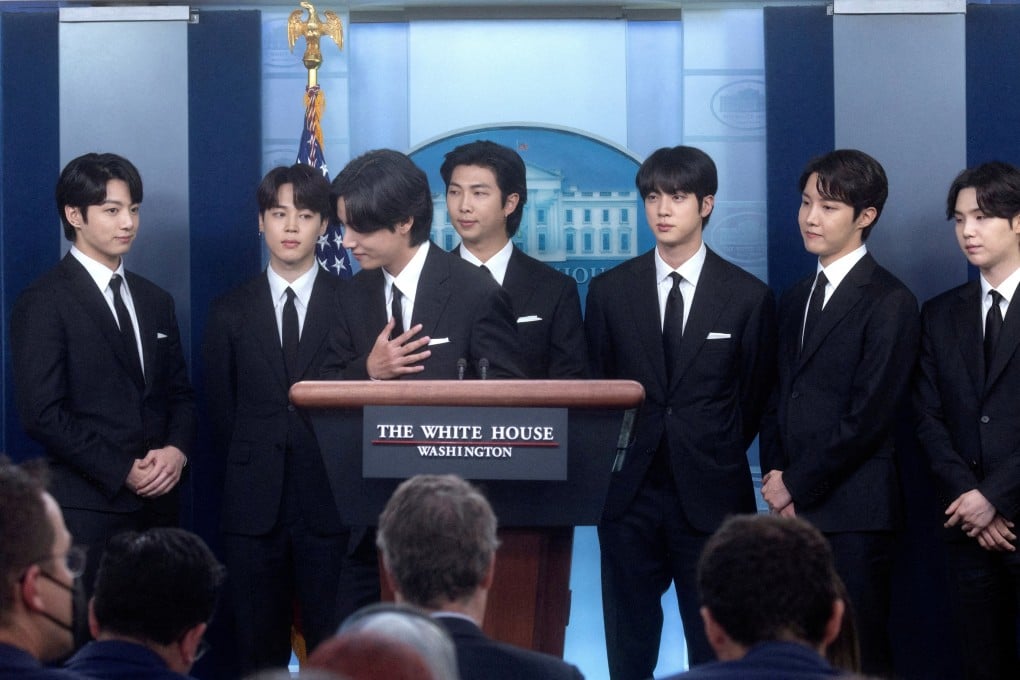BTS has spoken out against anti-Asian racism in the West, but what about discrimination in South Korea?
- The group, now taking a ‘hiatus’, has faced criticism for being more vocal about discrimination overseas than they are about the same problem in their own country
- But observers say BTS is constrained by what’s still a conservative society, and ‘strict’ K-pop rules that prevent them from having ‘control of their own lives’

BTS has been the most popular South Korean boy band for years, winning major awards and topping the charts at home and abroad since their 2013 debut.
But such overseas activities have prompted some compatriots to question the seven members’ influence in their own country. “BTS really should be speaking about [the] anti-discrimination law in Korea, but there is no money in that,” read a typical tweet after the group’s visit to Washington.
Despite an increasingly multicultural landscape, South Korea has not yet implemented a comprehensive anti-discrimination law, seen in many other nations.
Consequently it is not illegal or uncommon for foreigners to be banned from bars and clubs, even in the capital Seoul, or for schools to fund mental health programmes where students are discouraged from being LGBT, although the National Human Rights Commission of Korea is able to investigate and report alleged discriminatory acts and recommend non-binding disciplinary measures.
